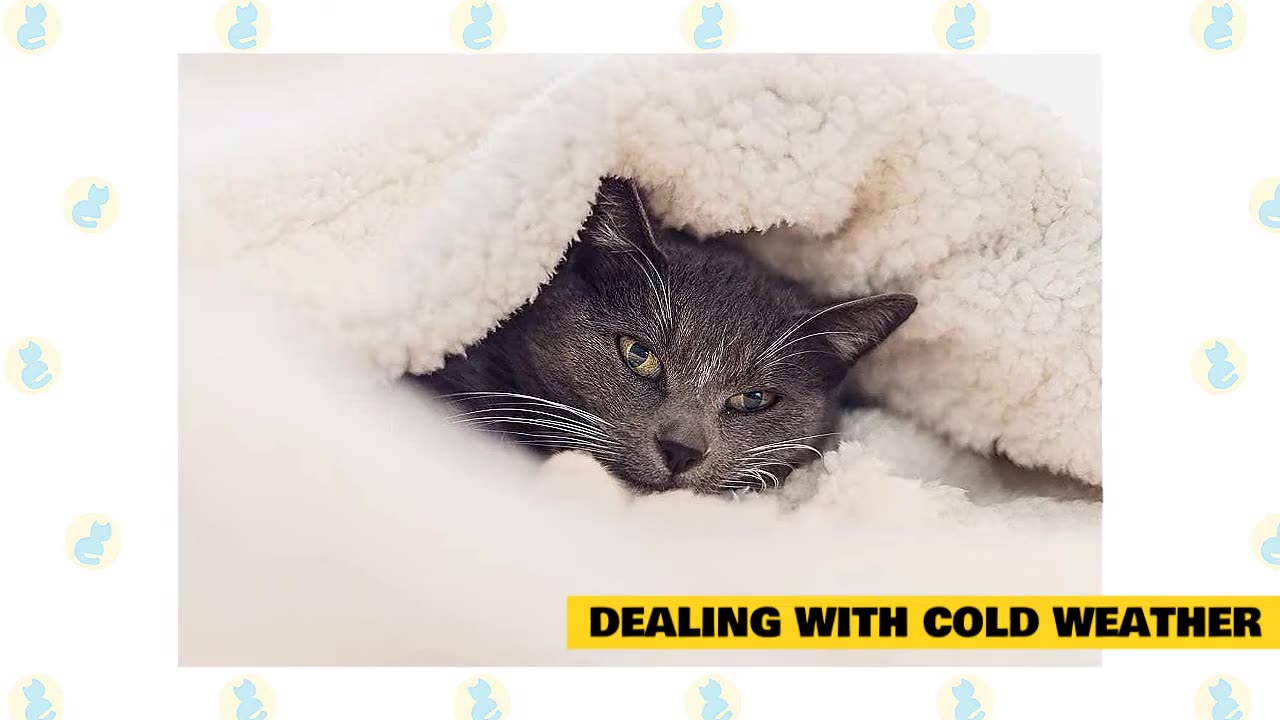Premium Only Content

Cat 101: Cats and Cold Weather
Description
Cat 101: Cats and Cold Weather
Kitten Life
72
J'aime
5 823
vues
2021
1 juil.
Use coupon code "KITTENLIFE" to get 20% OFF The Best Cat Collars Available here :
https://www.bemixpets.com
( Use coupon code "KITTENLIFE" to get 20% OFF )
Maine Coon Facebook Page :
https://www.facebook.com/MaineCoon.org/
Maine Coon Facebook Group:
https://www.facebook.com/groups/maine...
===============================================
In today's video, we are going to talk about Cats and cold weather.
Cold weather can be hard on cats, just like it can be hard on people. When the thermometer dips below freezing, it is important to protect your cats from the cold spell. The most important is to keep your cat indoors. Probably the best prescription for winter's woes is to keep your cat inside with you and your family. Being outdoors, unattended does nothing to improve the quality of your cat’s life.
Cold weather problems.
Sometimes cat parents forget that their pets are just as accustomed to the warm shelter of the indoors as they are. Some people will leave their cats outside for extended periods of time, thinking that they will adapt to life outdoors. This can, however, put pets in danger of serious illness.
Hypothermia, or a body temperature that is below normal, is a condition that occurs when the cats are not able to keep their body temperature from falling below normal. It happens when they spend too much time in cold temperatures, or when cats with poor health or circulation are exposed to cold. In mild cases, your cat will shiver and show signs of depression, lethargy, and weakness. As the condition progresses, her muscles will stiffen, her heart and breathing rates will slow down, and she will stop responding to stimuli. If you notice these symptoms, you need to get your cat warm and take her to your veterinarian.
Another cold-related problem is frostbite. Sometimes your cat may accidentally be left outside or become lost during a heavy snowstorm. The result could be frostbite. If this happens, remember - frozen tissue should never be rubbed. This causes additional tissue damage. Prompt veterinary treatment is needed. If this is not possible, warm the affected area rapidly by immersing in warm, never hot, water or by using warm, moist towels that are changed frequently. As soon as the affected tissues become flushed, discontinue warming. Gently dry the affected area and lightly cover with a clean, dry, non-adhesive bandage. If frostbite is in the later stages, gangrene may set in and cause all kinds of infections. If you suspect your cat has frostbite, take her to the veterinarian.
Dealing with cold weather.
As winter weather really sets in, don't forget to help keep your cats warm and safe. Help your cats remain healthy during the colder months by following these simple guidelines.
The winter season can be harsh on cats, so you should fortify their coat. Supplementing their diet with essential fatty acids will cause the coat to grow a bit thicker for the cold months. Vegetable oils such as canola oil, safflower oil, soybean oil, butter, and fish oils are high in these fatty acids. They can be added to the food. Cats do have a preference for fish oils!
Increase your cat’s supply of food, particularly protein, to keep her fur thick and healthy through the winter months. So long as your cat does not have a weight problem, give her extra food and treats during the winter months to help her keep warm.
Give your cat vitamins E and B-complex that will strengthen the tissues and make cats more resistant to cold weather. Be careful, though, because providing additional vitamins can actually cause imbalances in diet and medical problems.
Be particularly gentle with elderly and arthritic cats during the winter. The cold can leave their joints extremely stiff and tender, and they may become more awkward than usual. Stay directly below these cats when they are climbing stairs or jumping onto furniture. Consider modifying their environment to make it easier for them to get around. Make sure they have a thick, soft bed in a warm room for chilly nights.
If you have to take your cat to the vet, put a hot water bottle in the carrier. You can also put the cat's bed in the dryer for a few minutes before putting it into the carrier. A cover or towel on the carrier is good for blocking draughts.
Keep your pet's coat well-groomed. Matted fur won't properly protect your pet from the cold.
-
 LIVE
LIVE
Akademiks
2 hours agoDay 1/30. KANYE WEST GOIN CRAZY
4,641 watching -
 LIVE
LIVE
Dad Dojo Podcast
11 hours agoEP24: Defending Your Kid: How Far Is Too Far?
145 watching -
 LIVE
LIVE
Bannons War Room
1 month agoWarRoom Live
24,117 watching -
 LIVE
LIVE
MYLUNCHBREAK CHANNEL PAGE
22 hours agoNephilim Were Found in 1880?
882 watching -
 53:13
53:13
BonginoReport
4 hours agoJFK Files Drop (Ep.163) - 03/19/2025
111K205 -

Matt Kohrs
13 hours agoMarket Open: Fed Interest Rate Decision Day || The MK Show
21.5K2 -
 1:12:15
1:12:15
Dear America
10 hours agoSHOCKING JFK Files Revelations + Harry Sisson In Trouble & Elon Saves Stranded Astronauts!
39.9K12 -
 46:12
46:12
Randi Hipper
1 hour agoBREAKING BITCOIN NEWS!
8.55K -
 LIVE
LIVE
Wendy Bell Radio
6 hours agoWELCOME HOME
9,458 watching -
 16:10
16:10
T-SPLY
4 hours agoElon Musk Is Still Being Attacked After Saving Stranded Astronauts
16.9K14